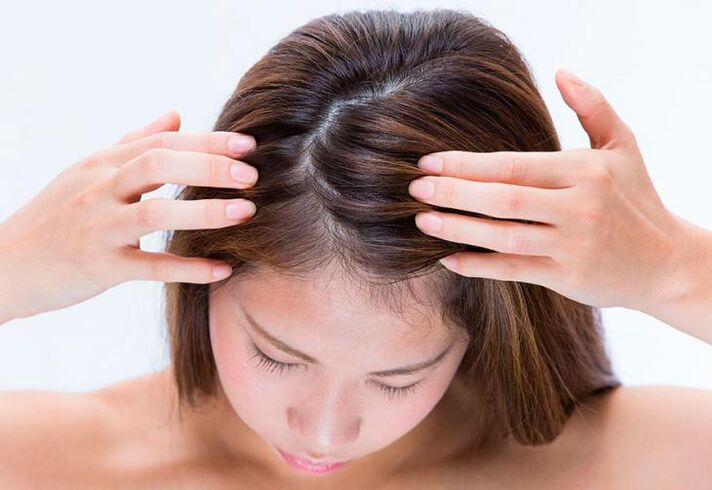Psoriasis (from the Greek "pissa" - "skin disease, scabies") is a chronic non -infectious disease. Liken scales (so they also call psoriasis) mainly affects the areas of the skin at the elbow and knee joints, on the head and lower back. But there is also psoriasis of nails, joints and external genitals, but these forms are extremely rare.
Causes of psoriasis

This disease is due to a short life cycle. The fact is that in a healthy person, skin cells are updated every 30 days, d. m. th their division cycle and baking occurs in about 4 weeks. Psoriasis is, one can say, an abnormal reaction of the body to different types of external stimuli, as a result of which in some places the upper layer of the skin dies in just 4-5 days, leaving behind keratinizing areas.
So far, psoriasis is considered a multiple disease, d. m. Th. The disease is based on a variety of reasons: immune shifts, metabolic disorders, various neurological and endocrine disorders.
The exact reasons why a person has psoriasis is not finally determined. There are some theories in this regard. According to one of them, two types of psoriasis are distinguished:
According to another theory, psoriasis occurs only due to damaged immunity, the causes of which may have infectious diseases, stress, alcoholic beverages, malnutrition, cold climate. Brackets, pepper and foods containing vinegar can cause irritation and worsen psoriasis. Psoriasis, according to this theory, is a systemic disease. And that means that with serious damaged immune systems, the process can be spread from the skin to other organs, for example, in the joints, as a result of which psoriatic arthritis develops.
Symptoms of psoriasis
Symptoms of psoriasis of the head, knees, elbow joints and lower back are peeled papules of red or pink. They are covered with silver scales (ie the name "Lichen Scaly"), which when the comb easily disappears. Over time, the dots grow in size, join in large formations (tiles) and touch more and large areas, and cracking and damaged skin bleeding.
Psoriasis of nails manifests a little differently. First, the nail plates are darkened, the stains and dots appear on them. Very often with psoriasis, nails thickened and destroyed.
The symptom of psoriasis in the form of rashes is associated with severe itching, especially in papules, but applies to nearby areas.
Depending on the seasonality of the irritation, three types of psoriasis are distinguished: summer, winter and uncertain. Most often, there is a type of winter - its symptoms under the influence of sunlight weaken, and sometimes disappear altogether. In patients with a summer form, on the contrary, the course of the disease worsens under the influence of the sun.
Treatment of psoriasis
Treatment of psoriasis, depending on its type, is performed with different medicines and methods. In any case, the therapy must be complex.
Treatment of psoriasis drugs in the progressive phase usually includes:
In the immovable stage of psoriasis, autochochemotherapy (method of treatment with your blood), antiphagine or anatoxin injections (in the presence of chronic infection seals) as well as ultraviolet radiation. For external use, Ichthyol is prescribed, pitch sulfuric oil, as well as naphthalene with the addition of corticosteroids.
Very often, psoriasis of the scalp and skin of other parts of the body is treated with a laser. Laser rays activate the molecules of living clothes, providing photographic, photochemical effects and other positive effects.

For the treatment of severe forms of psoriasis, photo chemotherapy is used, which implies the effect on the skin of long wave UV and the use of special medicines. Thanks to photochemotherapy, you can get rid of about 80% of the tiles, and with regular use - about 95%. In a severe course of the disease, the intake of corticosteroid hormones and cytotoxic immunosuppressants is indicated.
Also for the treatment of psoriasis, radiotherapy, ultrasound, ultraphonophoresis, electrotherapy, cryotherapy, magnetic waves, thalasotherapy, plasmosorption and hemorruscation.
All patients indicate a diet with a restriction of carbohydrates and animal fats, with the exception of acute dishes and alcohol. Also, patients with psoriasis are recommended by tourist treatment - sea bath, sun bath, radon sulfur and hydrogen springs.
Treatment of psoriasis with popular remedies
Popular recipes also help get rid of the symptoms of psoriasis. However, it is worth remembering that the cause of this disease may be disruption in the immune system and impaired immunity due to chronic diseases. For this reason, the treatment of psoriasis with folk remedies must first agree with the attending physician, and secondly, it must only complete the basic therapy. Ignoring or improper treatment of such a serious disease is fraught with its transition to a severe form, which is characterized by nodes damage. They will begin to swell, lose movement and get sick. Moreover, psoriasis reduces the standard of living of a person-many patients complain of the instability of emotional and psychological state.
So popular recipes:
It is very useful for psoriasis of a bath with the addition of an infusion of a series, celandine, St. John's Wort, spruce and sage extract.
Unfortunately, at the moment it is completely impossible to cure psoriasis, relapse can occur at any time, so people with such a diagnosis must be constantly respected by a dermatologist.























